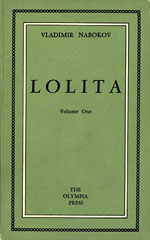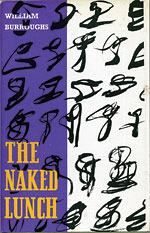The Good, the Bad, and the Obscene
The Naked Lunch, Lolita, Sexus—nothing was too salacious for Olympia Press publisher Maurice Girodias By Angus Carroll Angus Carroll is head of the editorial group for Gale, a division of Cengage Learning, one of the largest educational publishers in the U.S. In addition to the Olympia Press, he collects Darwin and runs the Darwin Census, a joint project of the Huntington Library and Darwin Online, which is registering the surviving copies of the first edition of Darwin’s On the Origin of Species. To date the census has located over 300 of the 1,250 copies originally printed.
When my father died in 1995, I found a half-dozen green paperbacks in his office, his own book included—Bottoms Up—all volumes in the now infamous Traveller’s Companion Series. Not realizing what I was getting into, I thought it would be fun to collect the set. Thus began my ten-year odyssey with the Olympia Press.
From a handful of “greenies” to editing the definitive bibliography by Patrick Kearney, it has been a fascinating adventure—one day poring over obscure French laws, one day tracking down an unknown variant of Lolita. And one day opening a newly arrived package at the kitchen table. It was White Thighs by Frances Lengel (one of Alexander Trocchi’s pseudonyms). Of course, my wife Susan came into the room at that very moment. She looked at the book and then at me. I said, “It’s part of the series.” She turned and walked out of the room. “It’s part of the series,” I called after her, but she was gone.
The Olympia Press was founded by Maurice Girodias in Paris in 1953. Continuing his father’s legacy as a fearless, avant-garde publisher (his father, Jack Kahane, had published James Joyce, Anaïs Nin, and Henry Miller), Girodias (who took his mother’s maiden name during the war) was the first to publish The Ginger Man, The Naked Lunch, and—most famously—Lolita.
Girodias attracted the attention of the French authorities long before he founded the Olympia Press. Although he started his publishing career innocently enough in 1940 with a weekly directory of Paris theatres, Paris-Programme, and followed that with a number of high-quality art books published under the Editions du Chêne imprint, in 1946 he published a French edition of Miller’s Tropic of Capricorn that was immediately banned, the first time the French government had moved against a book since Flaubert’s Madame Bovary a century before. He won that battle, but then published (in English) Miller’s Sexus in 1949 under his father’s resurrected imprint, the Obelisk Press. That book was banned outright in all languages. Thus, by 1950, he had established a reputation as a publisher of the risqué if not the pornographic.
In 1951, Girodias lost control of Editions du Chêne (and thus also Obelisk Press) to Hachette, the largest publisher in France. Over the next few years he did very little (his own words) before launching the Olympia Press, named after Manet’s scandalous painting.
It was not long before he was once again in hot water. Indeed, the first book off the press was Miller’s Plexus, which more or less set the tone for the new enterprise. From the pornographic to the experimental, from first English translations to modern classics, Girodias published a bizarre mix of the good, the bad, and the obscene.
Ironically, Girodias was, to some degree, a victim of his own success. Once censorship laws in the U.S. and U.K. were repealed, the market for “dirty books” was never the same. Girodias moved to New York in the late 1960s to capitalize on new publishing freedoms in the U.S., but the company went bankrupt in the early 1970s. He published his last book in 1974 and died in Paris in 1990 at the age of 71.











